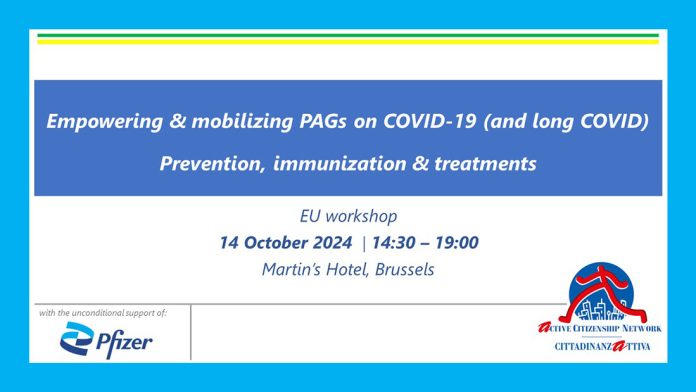
Health Europa is proud to announce its role as a media partner for the upcoming ‘Empowering & Mobilizing PAGs on COVID-19’ event.
This important event will take place in Brussels on October 14, bringing together civic and patient association leaders to address the ongoing challenges posed by COVID-19.
The Impact of COVID-19 in the WHO European Region
The COVID-19 pandemic has had significant economic, health, and social consequences across the WHO European Region, affecting hundreds of millions of people.
Although the acute phase of the pandemic has passed, the long-term effects on health systems remain. Health workers continue to experience high levels of burnout and COVID-19-related illnesses, contributing to workforce shortages.
These shortages have led to increased waiting times for patients and further pressure on health services. Additionally, the need to treat individuals experiencing persistent symptoms after acute COVID-19 infection has become a critical issue.
Understanding Post COVID-19 Condition (PCC)
The collection of mid and long-term symptoms following COVID-19, commonly referred to as long COVID or Post COVID-19 Condition (PCC), remains a major concern.
According to the World Health Organization (WHO), PCC is defined as the continuation or development of new symptoms three months after the initial infection, with symptoms lasting at least two months without another explanation.
These symptoms can vary widely, with over 200 documented in the literature. The most common symptoms include fatigue, shortness of breath, cognitive dysfunction, and others.
But how can healthcare providers recognise these symptoms? And who should patients be referred to for treatment?
Although the exact number of people affected by long COVID is unclear, studies estimate that approximately 10-20% of individuals continue to experience symptoms weeks, months, or even years after the acute infection.
This raises questions about prevention strategies and the role of vaccination in managing COVID-19, particularly in light of emerging variants like KP.3.
Addressing service delivery
Organising and delivering care for individuals with COVID-19 and post-COVID-19 syndrome presents significant challenges.
A recent WHO study on service delivery models across selected European countries sheds light on how these countries are addressing the needs of those affected. The findings highlight variations in care pathways and suggest areas for improvement in managing long COVID patients.
One year after the end of the acute phase of the pandemic, prevention, immunisation, and treatment remain critical.
These efforts are especially vital for protecting vulnerable populations. Access to accurate information and ongoing vaccination policies continue to play an essential role in mitigating the spread of new COVID-19 variants and ensuring better health outcomes for those at risk.
A platform for civic and patient associations
As part of the European project ‘Empowering & Mobilizing PAGs on COVID-19’, the Active Citizenship Network is organising a full day of discussions by invitation only.
This event is designed for leaders of civic and patient associations who are eager to deepen their engagement in the fight against COVID-19. Independent experts will join participants to provide valuable insights on prevention, vaccination policies, and service delivery models.
This initiative builds on the work carried out in 2023 and aligns with ongoing efforts at both the national and EU levels to address the challenges posed by COVID-19.
The event is part of a broader long-term commitment to empowering civic and patient organisations to play an active role in managing the pandemic’s continued impact on health systems and populations.










